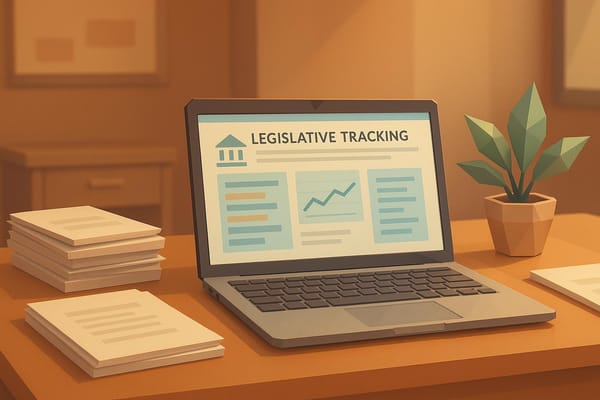Alabama's SB12 Simplifies Licensing Process

In a significant move to streamline the licensing process in Alabama, Senator Elliott has introduced SB12, a bill poised to eliminate unnecessary bureaucratic hurdles. Currently, many individuals and businesses face challenges when they are required to acquire multiple licenses or permits from different agencies before obtaining the necessary certifications to operate legally. This new legislation seeks to prohibit any state or local agency from conditioning the issuance of a license on obtaining an additional license from another entity. It underscores the importance of making business operations more accessible and less cumbersome, which is critical in fostering economic growth.
In the following sections, we will delve into the specifics of SB12, its implications for individuals and businesses, and the potential impact on the regulatory landscape in Alabama.
Overview of SB12
SB12 addresses a key issue that has plagued businesses in Alabama: the overlapping requirements for licenses across different levels of government. The bill clearly states that:
"A governmental body may not require, as a condition for issuing a license to a person, that the person seeking the license first obtain a different license from a separate governmental body."
This straightforward stipulation is designed to cut through the red tape that many entrepreneurs face, thus promoting a more efficient regulatory environment.
The Problem with Current Licensing Practices
Currently, business owners often find themselves navigating a complex web of licensing requirements, which can vary significantly between local and state agencies. This fragmentation leads to confusion, delays, and in some cases, the outright discouragement of new business ventures. The time and resources spent ensuring compliance with these requirements could instead be invested in growing the business. By eliminating the cross-requirement for licenses, SB12 aims to simplify this process.
Implications for Business Owners
The introduction of SB12 is expected to have a profound effect on small business owners in Alabama. By removing the prerequisite of obtaining multiple licenses from different governmental bodies, entrepreneurs will be able to expedite the process of starting and operating their businesses. This change is not just about convenience; it also reduces the costs associated with compliance and speeds up the time to market for new businesses.
Impact on Local Governments
While SB12 promotes business efficiency, it also compels local government agencies to rethink their regulations concerning licenses and permits. Municipalities may need to adapt their policies and procedures to align with the new law. This adjustment could lead to a reevaluation of bureaucratic practices and a move towards more uniform regulations that can facilitate easier business operations.
Feedback from Stakeholders
The reaction from various stakeholders has been predominantly positive. Business associations and chambers of commerce have hailed the proposal as a step in the right direction. They believe that by simplifying the licensing process, it encourages entrepreneurship and supports existing businesses in Alabama to thrive. Local government representatives also see this as an opportunity to enhance their services and foster a business-friendly environment.
Future Outlook and Conclusion
SB12 represents a significant reform in Alabama’s licensing structure. Scheduled to take effect on October 1, 2025, the bill could pave the way for a more dynamic business landscape in the state. As businesses adapt to these forthcoming changes, it will be essential for local governments to engage in dialogue with the business community to ensure a smooth transition.
In summary, Alabama's SB12 is a proactive approach to reducing bureaucratic obstacles in the licensing process, encouraging economic development and supporting local businesses. This legislation not only promises to facilitate smoother operations for business owners but also signals a legislative commitment to a more business-friendly environment.




